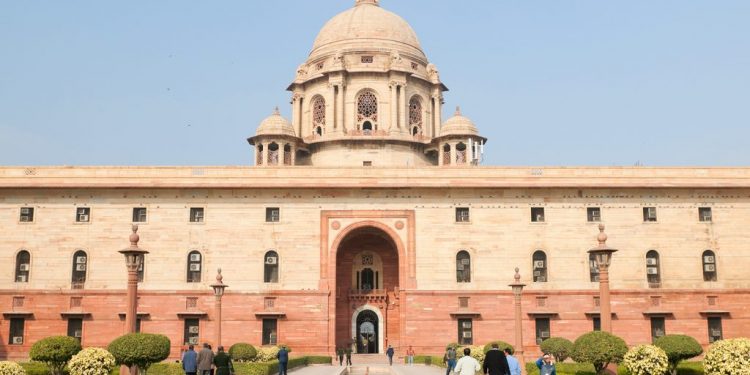Ashok Mahapatra
Following the Sepoy Mutiny in 1857 that came close to toppling the British rule in India and pursuant to the Government of India Act 1858, the administrative responsibilities were taken over by the Viceroy of India. The Viceroy was a direct representative of the Queen of England and assisted by the Imperial Civil Service (ICS). The ICS was headed by the Secretary of State for India, a member of the British cabinet.
Initially, almost all ICS officers were British and had been educated in elite British schools. Thereafter, a few Indians were inducted into the ICS. At the time of Independence, there were 322 Indians and 688 British ICS officers. In their heyday, those of the ICS were the most powerful officials in the Empire. A tiny cadre, a little over a thousand-strong, ruled more than 30 crore Indians. The ICS directed all the activities of British India, and every ICS officer had an average of three lakh subjects under him and lorded over every corner of his subjects’ lives. The ICS, as belied by its name, was beholden to the British Empire and its principal role was to control colonial India on behalf of the Crown. Accordingly, all administrative and legal infrastructure were built to further this cause. This ethos of controlling every part of the subjects’ lives was carried forward by the successor service, the Indian Administrative Service (IAS), after Independence.
Jawaharlal Nehru noted that someone had once defined the Indian Civil Service “as neither Indian, nor civil, nor a service, but with which we are unfortunately still afflicted in this country.” At the time of Independence, the ranks and posts of the erstwhile ICS along with its top people were retained for continuity. The only thing that changed was the nomenclature as “IAS”. Other than that, nothing else changed.
Their main role was still to control almost every aspect of lives of the people under their jurisdiction and distribute largesse to those whom they fancied. There was no doubt at the time of Independence that the civil service was the frame of the country and that, without them, the country would collapse.
After Independence, India adopted a controlled economy to manage its finances. Hence, the ethos of the ICS continued with the IAS. As result, while the political class was coming to terms as how to govern the nation, the philosophy of control set forth by our colonial bureaucrats was continued and strengthened by the IAS.
In 1979, Margaret Thatcher, elected on the promise of change and reform, stated, “We have to move this country in a new direction, to change the way we look at things, to create a wholly new attitude of mind.” She appointed Sir Derek Rayner, who was not connected with the Civil Service, to recommend reforms and make the government administration more efficient and accountable. This resulted in core policy being made by a core team of competent civil servants while the operation and execution of the approved policies were entrusted to a number of independent agencies headed by professionals.
Furthermore, Margaret Thatcher was a visionary who recognised the onset of globalisation and that there was the need for professionals rather than generalists in positions of decision-making to ensure that Britain continued to retain its place in the world order. She faced strong resistance from the well-entrenched British Civil Service. Nonetheless, she stood firm in her conviction and reformed the service anyway.
The role and competence of the policy makers have evolved since the 1950s. Today, no policy can or should be made purely from a national perspective. It needs to be made after taking the geopolitical situation and the state of the world economy into account. Therefore, the policy makers need not only be competent, but also specialised in the subject matter that they are handling to define the nation’s policy.
I have no doubt that, at the time of being inducted, the officers of the Civil Service were the brightest. However, once put in a policy making position, without specialisation, they are not fit for the job. It is impossible to make a considered judgement without having a complete understanding of the subject matter to ensure that it is acceptable both at international and national levels.
Additionally, without in-depth knowledge of the subject matter, it would be impossible to defend the country’s interests socially and economically when negotiating with investors and trade partners; particularly so when every country is competing for the same piece of the pie and protecting their own interests.
The initial training prepares our civil servants for fieldwork. After they have done their mandatory fieldwork, they move to policy making positions (at the level of joint secretary at the Centre). At this stage, they are not specialised in any particular area from where they can dictate policy for the benefit of the national economy and the welfare of the Indian people after taking into account the geopolitical situations of the world. You cannot, and should not, have someone making policy on one subject one day and on another the next day. As a result, that person often gets either overwhelmed or over-dependent on the un-experienced junior cadre who do not have enough of exposure to fathom the larger picture. This often leads to decisions which have undesirable results.
The recent cabinet decision encouraging civil servants to reskill voluntarily is not the answer. When have the civil servants accepted any change to their service conditions voluntarily? They have responded only when the political masters ordered them to do this or that. Hence, mandatory specialisation is a must for policy makers.
While the civil service has served the country reasonably well, there is a need for an overhaul to meet the challenges of today. The Modi government came to power on the promise of change. Hence, it is incumbent on the Prime Minister to lead the charge for change for a new direction, to change the way we look at things, to create a new mindset for an India of the 21st Century. This is his ‘once in a century’ moment. No doubt there will be pushback from bureaucracy as they would not like to be disturbed from their comfort zones. Furthermore, the process cannot be led by the existing bureaucracy. It needs to be led by someone
from outside the system and not having any existing baggage and definitely not a retired bureaucrat. Every bureaucrat will always protect his own brethren. Nonetheless, I believe the PM can do it. This is India’s chance of the century – reform we must or we miss the opportunity of the century and perish.
The writer is Director (retired), Maritime Safety Division, International Maritime Organisation, UN.






































